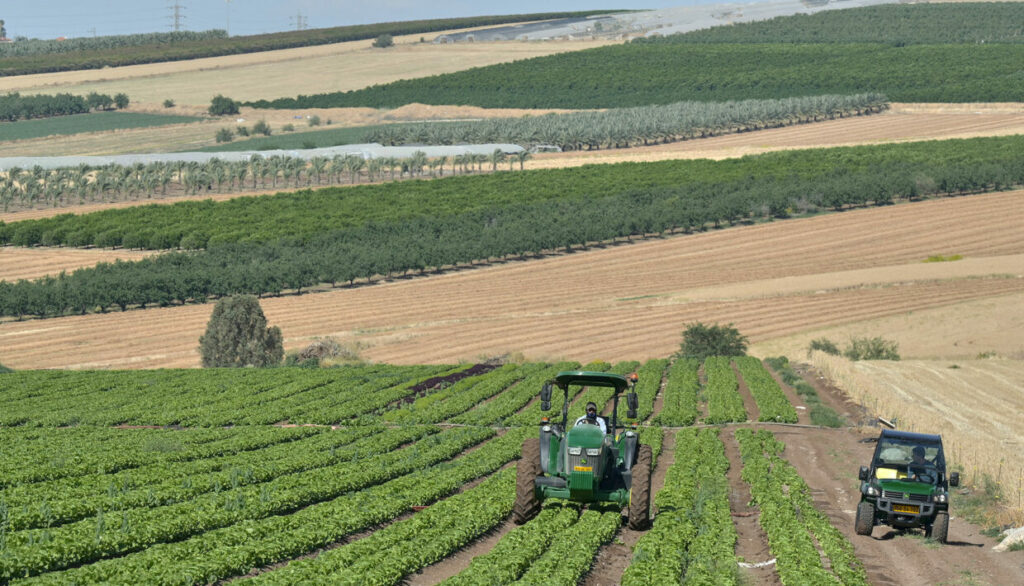The Israeli wine scene is becoming increasingly popular with wine lovers. With its blend of age-old traditions and modernity, this country is full of surprises. Its geographical diversity, unique climate and innovative techniques are all contributing to the revival of Israeli wine.
If you're interested in wine-related articles, download our app for IOS or Android. It will give you access to our wine lexicon, our articles and our innovative solution, designed for all wine consumers and collectors.
An ancient story with biblical roots
Wine has been part of Israel's history for thousands of years. The Bible already mentions vines cultivated in the Judean hills. At that time, wine had a sacred dimension, linked to religious rites. These uses have survived the centuries.
However, after Ottoman domination, viticulture declined. It was not until the end of the 19th century that it was revived, thanks to the impetus of Edmond de Rothschild. This French banker financed the first modern wine cellars, laying the foundations for contemporary Israeli wine tasting.
An exceptional terroir for varied production

Israel is not limited to a single climate. The country is home to a number of wine-growing areas. There are vineyards in the Golan Heights, in the Negev desert and near the Jerusalem hills. Each has its own particular characteristics.
In the north, the Golan Heights stand out for their volcanic soils and cool nights. Wines here gain in structure and finesse. Further south, the desert produces surprising wines. Thanks to advanced irrigation techniques, Israel's undiscovered vineyards produce powerful, concentrated reds.
International and indigenous grape varieties
Israeli estates rely on a wide range of grape varieties. Cabernet Sauvignon, Merlot and Syrah remain the most popular. They give birth to deep reds, adapted to international tastes.
But some winemakers are betting on authenticity. They are reintroducing old varieties that are unique to Israel. Marawi, for example, produces lively, mineral whites. These choices reinforce the identity of Israeli wines.
Evolving expertise
Over the past twenty years, quality has improved significantly. Israeli winemakers travel a lot. They draw inspiration from best practices in Burgundy, California and Australia.
They also invest in modern equipment. Gentle pressing, long maceration or vinification in amphorae allow for a variety of styles. As a result, Israel wine tasting appeals to connoisseurs and the curious alike.
Emblematic estates to visit

Several wineries are well worth a visit. Golan Heights Winery, one of the most renowned, offers guided tastings. The older Carmel Winery traces the history of Israeli viticulture.
Other, more confidential producers are gaining in notoriety. Such is the case of Domaine Flam, nestled in the Judean hills. Its elegant cuvées testify to the richness of Israel's vineyards to discover.
The rise of wine tourism in Israel
Wine tourism is on the rise. More and more travelers want to combine culture, scenery and Israeli wine tasting. Some wine routes criss-cross the Carmel or Golan Heights. These offer the chance to combine walks with meetings with winegrowers.
Establishments also focus on hospitality. Many offer personalized tours, accompanied by food and wine pairings. The experience becomes immersive, authentic and enriching.
A strong cultural identity
Wine is an integral part of Jewish religious life. It accompanies festive meals, weddings and Sabbatical rites. This spiritual dimension still influences wine production.
Many estates produce kosher wines. Far from reducing quality, this label guarantees strict compliance with hygiene and manufacturing rules. Israeli wines from this tradition are also positioned on export markets.
Growing international recognition
International competitions are increasingly rewarding Israeli vintages. Some bottles now rival French or Italian grands crus.
This proves that the quality is there. The style of the wines is seductively balanced. Between freshness and structure, Israel wine tasting becomes a sensory experience in its own right.
How to serve these wines
White wines from local grape varieties are the perfect accompaniment to grilled fish. For red meats, choose a Golan Cabernet or Judean Syrah.
Lighter reds can be paired with Mediterranean cuisine, full of herbs and spices. These pairings reveal the richness of Israeli wines, which are still largely unknown to the general public.
Diversity accessible to all
Whatever your budget, there's a bottle to suit. Many wineries offer a wide range of products, from 10 to 60 euros.
The aim is simple: to democratize access to these wines. By exploring the Israel vineyards to be discovered, everyone can find their favorite style. Lovers of new wines will often find pleasant surprises.
Towards more sustainable viticulture
Faced with global warming, growers are adapting their methods. Some are opting for organic farming. Others are exploring solutions to limit irrigation.
The desire to preserve terroirs remains strong. As a result, Israeli wines are becoming increasingly environmentally friendly. This is part of the revival of an ambitious industry.
If you enjoyed this article, please read the following one "Tasting the wines of a single hill: a Côte-Rôtie experience"which may also be of interest to you!





